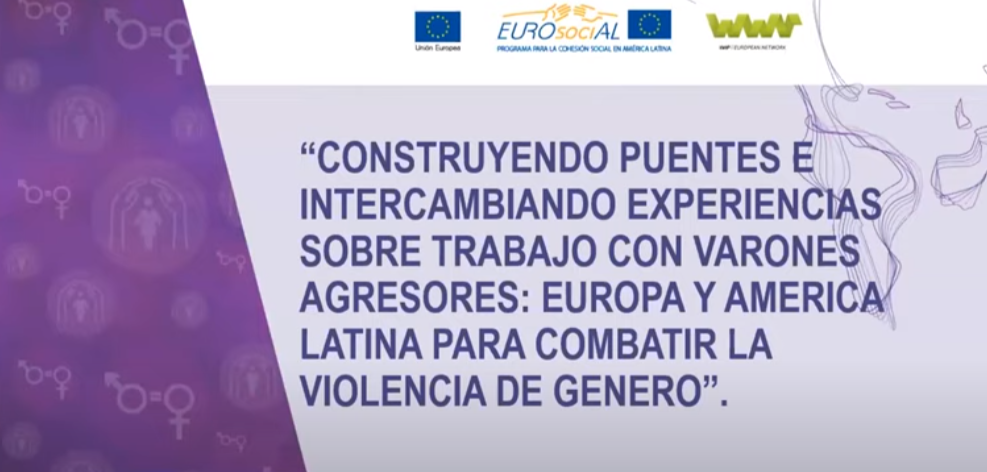By Alfonso Martínez Sáenz y Annabelle Moreau Santos

In Colombia 731 women were murdered in 2016, an average of 2.4 per day according to figures from the Institute of Forensic Medicine. Guatemala, on the other hand, is experiencing the murder of 2 women a day because of its gender. At a two-day virtual exchange event co-organized by the Gender Equality component of the EUROsociAL+ programme and the European Network Work With Perpetrators (WWP) in July 2020, we wanted to learn more about practical experiences of working with aggressors on both sides of the Atlantic.
As for Latin America, Oscar Acevedo, an EUROsociaAL+ expert based in Colombia, shared his feedback on the process by which aggressors imprisoned in Colombia and Guatemala recognised their acts of violence against women. He also highlighted how programmes in Latin America – such as the VCM, an Intervention Programme with Convicted Aggressors in Guatemala – work with aggressors in the prison context.
On the European side, Heinrich Geldschläger, psychologist and psychotherapist at Spanish association Conexus and also EUROsociAL+ expert, also intervened during this series of webinars. Based on the conclusive results of the ENGAGE pilot project (January 2018 – December 2019) co-funded by the European Commission under the Daphne programme, he not only warned of the need to directly integrate male aggressors into the strategy to fight gender-based violence, but also of the importance of raising awareness among political leaders regarding this issue. The potential of the existing programmes for the prevention and reduction of domestic violence against women and children in Spain, Italy and France has been increased through ENGAGE. Indeed, the project has strengthened the capacity of
frontline professionals to respond to male aggressors by making them acknowledge their abusive behaviour. Following respectful interviews, the aggressors were then encouraged to change their attitudes and were referred to appropriate specialized services to increase the safety of the victims.
These two webinars thus created synergies between programmes in Latin America and Europe pursuing a common goal: the desire to break the cycle of gender violence, deconstruct the social pressure of machismo on men and prevent male aggressors from re-offending.
While the task is challenging in Europe (3,000 feminicides per year according to UN Women), the fight is even more demanding in the Latin America (more than 3,000 potential cases in Mexico each year). For instance, El Salvador is currently experiencing one of the worst situations in the world in terms of intentional murders of women, with 13.9 women killed out of every 100,000, according to UNODC.
One of the reasons behind? There are many countries in this region where the role attributed to women is rooted in the collective imaginary of a patriarchal society that does not sanction men’s violence, concealing it to the point of allowing it to reach levels of seriousness that all too often lead to the death of female victims.
Lastly, these webinars are part of a joint work programme between the Gender Division of the EUROsociAL+ programme and the European WWP Network which may result in the creation of a bi-regional working platform on this subject.



